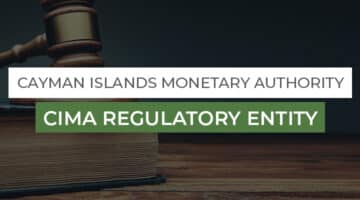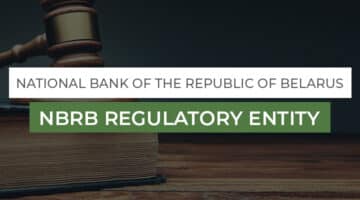FSA – Japan Regulatory Entity

In this article
The Financial Services Agency, FSA, is a Japanese regulatory authority for administering insurance, securities exchange, and banking activities. The Financial Services Authority was launched in July 2000 by the legislation of the Financial Reconstruction Commission through reorganizing the Financial Supervisory Agency, and it headquarters is in Tokyo.
The primary responsibility of the Financial Services Agency is to ensure the stability and integrity of the Japanese financial services system. The protection of its insurance policyholders, depositors, and securities investors.
It is the regulator of supervision, inspection, transparency, and evaluation of the financial system through the Securities and Exchange Surveillance Commission. It also monitors Japan’s Auditing Oversight Board and Certifies Public Accountants.
FSA mission
The FSA aims to establish a robust and reliable financial system in which financial markets regulate efficiently and fairly. Its mission is to promote the economy and national welfare of the country. So the FSA performs various functions for the economy. For example, it transmits funds and revokes the risk among regulating entities to provide a safe environment for services settlement. Therefore, it is impossible to enhance nation and economic welfare without an efficient and effective financial services regulation. The FSA’s mission is to build such a regulatory framework that ensures its users can benefit from their efficient regulation.
FSA history
In 1998, the Financial Supervisory Agency came into existence as an audit of financial institutions. Immediately, there is an establishment of the Financial Restructuring Commission in December 1998, which introduced the Financial Services Agency under its jurisdiction. So, FSA was established after reorganizing the Financial Supervisory Authority in 2000. Further, the FSA became an external body of the Council of Ministers through the central government ministries reorganization. So now FSA is known as Japanese primary financial services regulatory globally.
FSA regulated entities
The financial Services Agency regulate and administrate the following Japanese entities for a transparent and fair financial services system:
- Mortgages
- FinTechs
- Insurance Companies
- Cryptocurrency exchange
- Accountants and Audit firms
- Banks
- Credit Cards Companies
- Payment service providers
FSA roles and responsibilities
As a financial services regulatory entity, FSA can authorize the insurance companies, banks, trust companies, and other under jurisdiction financial institutions of Japan. Its main task is to protect and supervise the financial system’s stability and ensure financial institutions’ compliance with international and Japanese law. It is also responsible for developing the new financial legislation in correlation with the Japanese government. It plays a leading role in the stability of the Japanese economy and devises such plans and policies for its financial regulatory framework that protects the depositors and investors. In addition, FSA is regulated to protect the financial system from crimes and instability. So, there are some prominent roles that FSA has to accomplish for fulfilling the activities mentioned above:
- Devising rules and regulations for the trading market.
- Collaborating with the financial activities of international corporations.
- Administration of compliance criteria for the financial firms.
- Planning and policy making of Japan’s financial system
- Initiating standards for business accounting.
- Regulation and auditing of financial audits and advisors.
- Enhance financial management.
FSA core functions
The regulatory framework of FSA addresses the current challenges faced by the financial service market and responds to the threats effectively. So the FSA regulatory entity’s core functions are divided into three bureaus that are:
Supervision Bureau
It is responsible for overseeing the ongoing financial institution’s services regularly.
Strategy Development and Management Bureau
It is responsible for making policy strategies, investigating the financial sectors, and regulating the administrative duties of the financial system.
Policy and Markets Bureau
It is responsible for developing a legal regulatory framework to regulate the innovation of FinTech. And it is also responsible for controlling the FSA’s market policies.
However, when the financial institution violates the rules and regulations of FSA, the FSA regulatory entity has the power to charge punishment to those institutions that include the financial penalties, prison terms for their wrong deeds, and limitation of operations.
FSA AML approach
As an international and regional leader of anti-money laundering and counter financial terrorism, Japan is a part of the global Financial Action Task Force (FATF). Therefore, according to the FATF policies, the Financial Services Agency of Japan’s role is to ensure the Japanese financial institution activities comply with the AML practices and policies. The financial institutions in japan have to implement the AML risk-based approach to fulfil the requirements of the FSA regulatory entity. In the AML risk-based approach, there is the implementation of a screening mechanism for international
Sanctions, politically exposed persons (PEP), and adverse media.
To implement these activities, the financial institutions have to hire a Compliance Officer that administers and monitors their activities to comply with the AML compliance program.
The FSA applies the traditional, forward-thinking approach to the terrorism financing and money laundering threats facing by the financial corporations of Japan. But recently, FSA’s primary focus is on monitoring the cryptocurrency and cryptocurrency exchanges. In 2018, because of the conspicuous cryptocurrency thefts, FSA regulatory entity ordered to shut down two cryptocurrency exchanges and devised exchange licensing requirements.
For providing firms with up-to-date legislation information regarding AML risk-based approach, FSA has launched an online platform for providing inspection and supervision guidelines for all types of financial institutions regulated by FSA of japan. It has also published a Weekly Review to announce the legislative action it has taken.
Bottom line
Overall, the FSA regulatory entity came into existence for supervising and regulating various financial sectors of Japan, including insurance, banks, and other financial corporations. Besides the FSA regulatory authority, there is also a central bank known as BOJ, Bank of Japan. It is also one of the regulatory authorities of Japan that’s primary role is to monitor its financial system. Every regulatory entity requires three main goals from its financial institutions that are under its jurisdiction. These primary goals include protecting the firm’s customers, financial firm’s stability and integrity, and transparency of financial institutions. For accomplishing these goals, FSA has introduced four main pillars to the financial firms for an efficient regulation that are as follows:
- To make a principles-based and rule-based supervisory approach for an appropriate regulatory framework.
- To rapidly respond to high-priority issues efficiently.
- To enhance the voluntary efforts of FSA and give more emphasis on their incentives
- To promote regulatory predictability and transparency of policies and procedures.
Jason Morgan is an experienced forex analyst and writer with a deep understanding of the financial markets. With over 13+ years of industry experience, he has honed his skills in analyzing and forecasting currency movements, providing valuable insights to traders and investors.
Forex Content Writer | Market Analyst
Relevant Posts

SEC Regulatory Entity
[top_three_brokers] SEC stands for US Securities and Exchange Commission, an independent regulatory agency supervised by…
Read more

CIMA Regulatory Entity
[top_three_brokers] CIMA, the Cayman Islands Monetary Authority, is a primary regulatory entity of Cayman Island…
Read more

ASIC Regulatory Entity
[top_three_brokers] Defining the term ASIC is an independent Australian Government body that is generally administered…
Read more

NBRB Regulatory Entity
[top_three_brokers] NBRB Regulatory Entity (National Bank of the Republic of Belarus) is the Republic of…
Read more

MFSA Regulatory Entity
[top_three_brokers] Malta Financial Services Authority- MFSA is the main regulatory body of Malta. It was…
Read more

CFTC Regulatory Entity
[top_three_brokers] Trading in futures contracts has rapidly extended beyond conventional physical and agricultural commodities into…
Read more

KROUFR Regulatory Entity
[top_three_brokers] The Financial Market Participants Relations Regulation Commission, KROUFR, is a non-profit regulatory organisation. Its…
Read more

ASX Regulatory Entity
[top_three_brokers] ASX is an Australian Securities exchange created by the merger of Sydney Features and…
Read more

FCA Regulatory Entity
[top_three_brokers] Currently, the Financial Conduct Authority (FCA) regulates the financial services industry in the UK…
Read more

NAUFOR Regulatory Entity
[top_three_brokers] The National Association of Stock Market Participants is an industry-wide, independent self-regulatory organisation. It…
Read more

SEC Regulatory Entity
[top_three_brokers] SEC stands for US Securities and Exchange Commission, an independent regulatory agency supervised by…

CIMA Regulatory Entity
[top_three_brokers] CIMA, the Cayman Islands Monetary Authority, is a primary regulatory entity of Cayman Island…

ASIC Regulatory Entity
[top_three_brokers] Defining the term ASIC is an independent Australian Government body that is generally administered…

NBRB Regulatory Entity
[top_three_brokers] NBRB Regulatory Entity (National Bank of the Republic of Belarus) is the Republic of…

MFSA Regulatory Entity
[top_three_brokers] Malta Financial Services Authority- MFSA is the main regulatory body of Malta. It was…

CFTC Regulatory Entity
[top_three_brokers] Trading in futures contracts has rapidly extended beyond conventional physical and agricultural commodities into…

KROUFR Regulatory Entity
[top_three_brokers] The Financial Market Participants Relations Regulation Commission, KROUFR, is a non-profit regulatory organisation. Its…

ASX Regulatory Entity
[top_three_brokers] ASX is an Australian Securities exchange created by the merger of Sydney Features and…

FCA Regulatory Entity
[top_three_brokers] Currently, the Financial Conduct Authority (FCA) regulates the financial services industry in the UK…

NAUFOR Regulatory Entity
[top_three_brokers] The National Association of Stock Market Participants is an industry-wide, independent self-regulatory organisation. It…


